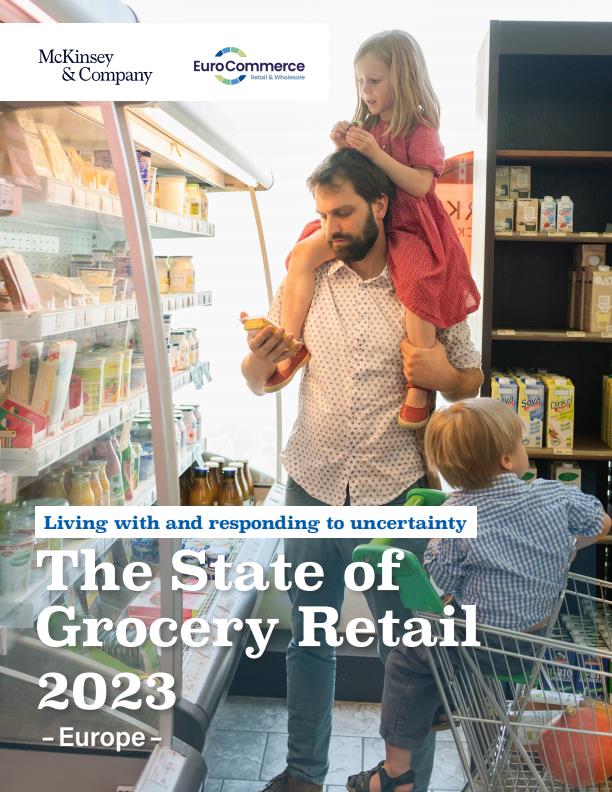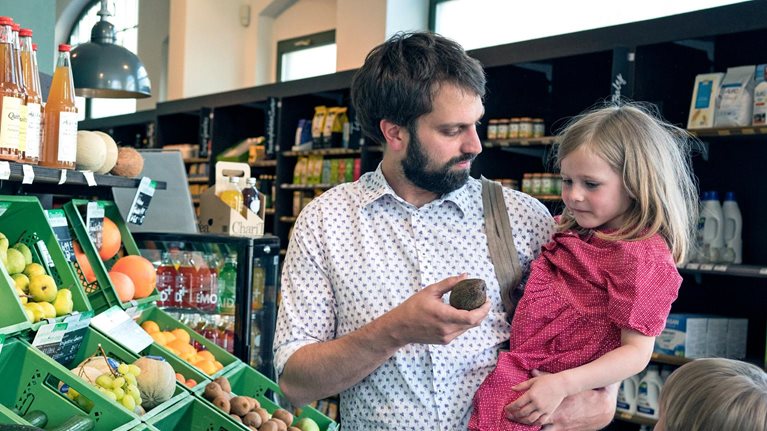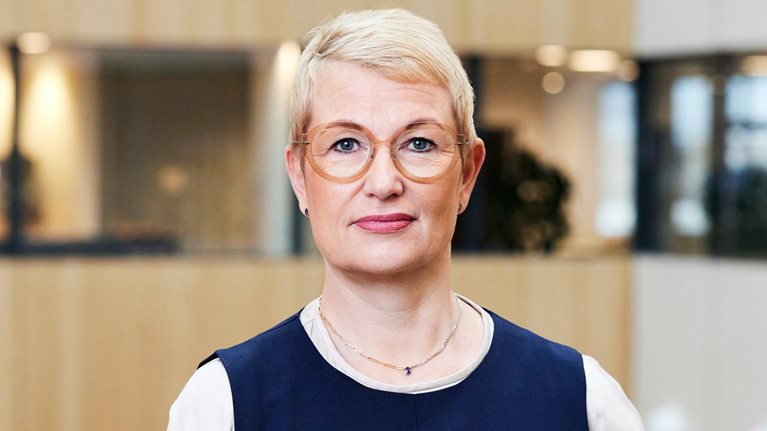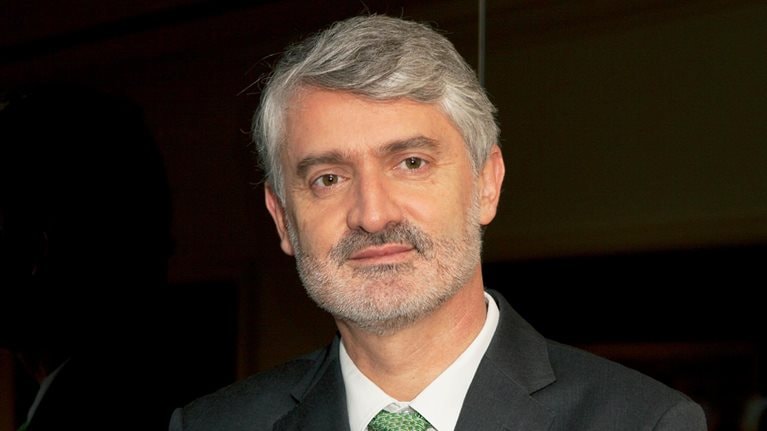McKinsey: Rohlik is a fairly young company. Can you tell us the story of why and how you launched it?
Tomáš Čupr: McKinsey made me do it. Ten years ago, in 2013, McKinsey published a report on the future of online grocery in Europe. It listed all the barriers that were stopping people from buying groceries online: limited assortments, concerns about reliability, freshness, and speed. When I founded Rohlik in the Czech Republic one year later, in 2014, I made it my mission to clear away all these barriers.
The core of the Rohlik proposition is same-day delivery. When we launched, nobody was doing same-day delivery, at least not in Europe. And we went even further. We brought the delivery window down to 90 minutes, and we created an unprecedented proposition in terms of assortment differentiation, reliability, and service. If customers weren’t happy, we just gave them their money back, no questions asked. It was all about being customer friendly, and it really took off.
McKinsey: What about profitability?
Tomáš Čupr: We broke even in the Czech Republic after four years, in 2018, and we have been profitable there ever since. Our profit margin is well over five percent. The success in the Czech Republic helped us raise venture capital for geographical expansion. In subsequent years, we launched in Hungary, Austria, Germany, and, most recently, Romania. We have proven that the Rohlik proposition is loved all over Europe, and we’re on the path to profitability across markets.
We will also make more comprehensive use of AI and machine learning in areas like order planning. We know all our customers, and we know where all of our goods are at any time.
In fact, I believe online can be more profitable than offline, as long as you don’t try to be all things to all people. We focus on affluent customers in urban areas. Going forward, we will invest in warehouse automation to achieve further productivity gains. We will also make more comprehensive use of AI and machine learning in areas like order planning. We know all our customers, and we know where all of our goods are at any time. For a lot of brick-and-mortar players, that is not the case, and we will leverage that structural difference to boost our profitability.
McKinsey: Was COVID a major driver of growth for Rohlik in the past two years?
Tomáš Čupr: Not really. We started scaling the business well before COVID. When the pandemic hit, we were already a €200 million business, with venture funding in the magnitude of €5 million. I admit that the lockdowns did accelerate our growth, but fundamentally, I believe that you don’t need external events to scale if you have a good proposition. We were growing at a rate of –100 percent before COVID.
McKinsey: And did sales drop off when lockdowns were lifted?
Tomáš Čupr: No. We continue to grow at more than 40 percent, and it’s mostly like for like, because we didn’t really add cities. The reason for our continued success is that we offer something that people don’t use out of necessity. They use it because they want to. As I said, COVID did bring some new customers, and a lot of them found that they liked this way of shopping, and they stayed with us.
McKinsey: Now that the pandemic is over, a lot of consumers are struggling with the effects of inflation. Do you see indications of customers trading down more?
Tomáš Čupr: We don’t see much of it. The affluent urban customers we target don’t feel huge pressure on their wallets. They value our big assortment and the fast delivery we offer. And when people do trade down, we make sure they trade down with us. We make it very hard for them to leave us for another retailer.
When people do trade down, we make sure they trade down with us. We make it very hard for them to leave us for another retailer.
McKinsey: How do you do that?
Tomáš Čupr: Value for money is key. The price per SKU is constantly increasing, so some people are buying fewer SKUs. In effect, they feel that they get less for their money. So to make sure these shoppers stay with us, we are pushing value for money.
Last year, we froze the prizes of basic commodities like milk, rice, and potatoes, about 60 SKUs in total. In some cases, our customers got milk for half of what they would have had to pay elsewhere. So, essentially, we let people feed their families at last year’s prices.
Looking ahead, it’s obviously a challenge to give consumers a good price without compromising your margin and your profitability too much. It’s not a big issue for us, but I see many smaller online players struggling with that, especially those that launched during the pandemic.
McKinsey: The pandemic gave rise to a lot of instant delivery propositions. What are your thoughts on that segment?
Tomáš Čupr: There is very little room for differentiation in that space. Instant is driven by only a handful of SKUs, mostly snacks and drinks. The locations are tiny, and you have to have many of them. And if we offered the wide, differentiated assortment our customers have come to expect from us in those highly dispersed locations, we would end up throwing much of the stock away. Our share of fresh goods is around 45 percent. So instant is not particularly attractive for us.
McKinsey: As you expand to new countries, do you find that your model is universal? Or does it require a lot of adjustment?
Tomáš Čupr: You need to have a local assortment, but the structure of the assortment is universal. The key is to focus on affluent urban customers. If you do that, the model will work everywhere. In Prague, we deliver to roughly 25 percent of all households. There are no exact numbers, but we can even reach revenues in the magnitude of 50 to 70 percent of Tesco’s offline revenue in specific micromarkets in which we compete with them. That is certainly something worth replicating in other markets.
McKinsey: And how are the big brick-and-mortar grocers reacting to your success?
One of the big offline players terminated its online trials three times while we kept growing. It’s a question of mindset. We would rather disrupt ourselves than be disrupted by someone else.
Tomáš Čupr: There have been many experiments and discussions, but when it comes to real execution at scale, we don’t see many players trying, at least not in the markets in which we are present. One of the big offline players terminated its online trials three times while we kept growing. It’s a question of mindset. We would rather disrupt ourselves than be disrupted by someone else.
McKinsey: Germany is one of your big bets for future growth. How will you address the high price sensitivity in that particular market?
Tomáš Čupr: People say that Germans are so price sensitive, but we don’t really see that. It might be true in aggregate, but our target segment is different. It’s a question of how deep you go into the data. You don’t want to get lost in the average. There is a big base of affluent, demanding customers in Germany, and we are well set up to serve them profitably. The offline players we are up against in this segment need a high number of locations to achieve scale, and a lot of the high-end SKUs they are offering don’t move very fast. We don’t have these problems. In Munich, for example, we serve 30 percent of all households out of a single fulfillment center in Garching.
McKinsey: Is it generally easier to succeed in e-grocery as an online-only player?
Tomáš Čupr: I think it is. You can’t just bring offline online. You have to start from scratch. That said, even pure play is far from trivial. It’s very hard to execute it well on a daily basis. But for offline players venturing into online, it’s even harder. For example, they will always struggle with consistency across channels in terms of assortment and prices. You might have to create a separate brand to solve that problem, and that is going to dilute your profit margin for several years.
McKinsey: As you keep growing, what kind of people do you hire?
Tomáš Čupr: We look for a founder-like quality. The will to innovate drives our success in the Czech Republic, and we need more of that as we expand to new markets.



